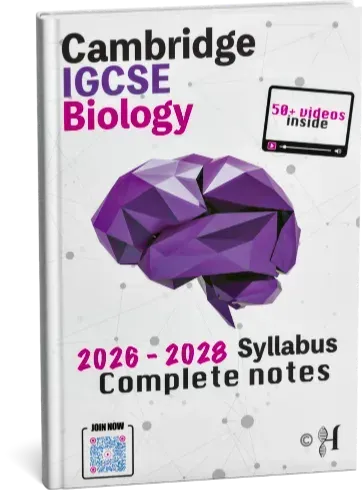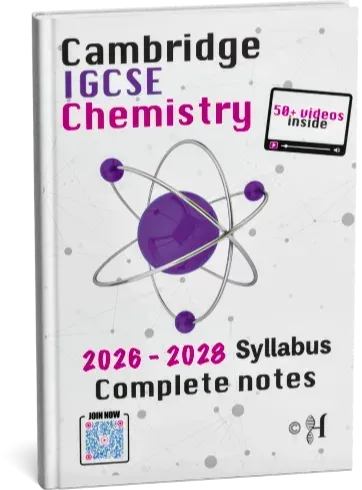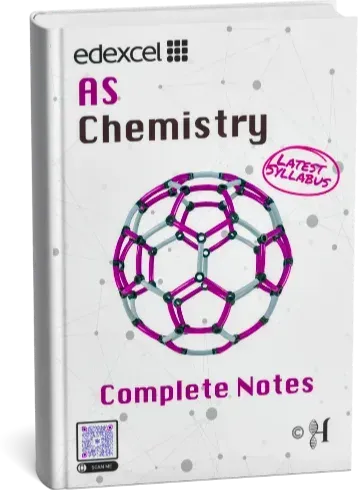Read this before starting IAL chemistry in 2025
Students' guide for Edexcel IAL Chemistry for 2025-2026 exams

Introduction
Hey there, future chemists! 👋 If you’ve just wrapped up your IGCSE and are gearing up for your A Level Chemistry journey, you’re in the right place. Welcome to your ultimate guide for Edexcel IAL Chemistry. 🎓✨
In this article, we’ll take a deep dive into the fascinating world of A Level Chemistry, specifically tailored for those following the Edexcel IAL syllabus. This guide is packed with everything you need to know to navigate through the course with confidence and ace your exams. We’ll break down the structure of the subject, explore the exam papers, and share invaluable tips that will support you throughout the year.
Whether you’re a seasoned pro or just starting out, this guide is designed to make your chemistry studies as smooth and enjoyable as possible. So grab your lab coats, and let’s get started on this exciting journey together! 🚀🔬
Unit Breakdown for Edexcel IAL Chemistry
Now, let’s break down each unit of the Edexcel IAL Chemistry course to give you a detailed overview of what to expect. This section will cover the main blocks within each unit and provide detailed explanations based on the specification.
Unit 1: Structure, Bonding and Introduction to Organic Chemistry
Block 1: Formulae, Equations, and Amount of Substance
This block lays the foundation for understanding chemical quantities and reactions. Key topics include:
• Mole Concept: Understanding the mole as a unit for amount of substance.
• Chemical Formulae and Equations: Writing balanced chemical equations with state symbols.
• Calculations: Performing calculations involving molar mass, empirical and molecular formulae, and reacting masses.
Block 2: Atomic Structure and the Periodic Table
Here, you will delve into the structure of atoms and how this relates to the periodic table:
• Atomic Structure: Understanding protons, neutrons, and electrons, and their arrangement in atoms.
• Electron Configuration: Learning about s, p, and d orbitals and how they determine the placement of elements in the periodic table.
• Periodic Trends: Exploring trends in properties like ionization energy and atomic radius across periods and groups.
Block 3: Bonding and Structure
This block focuses on the different types of chemical bonds and the structures they form:
• Ionic Bonding: Formation of ions and ionic compounds.
• Covalent Bonding: Sharing of electrons between atoms to form molecules.
• Metallic Bonding: Delocalized electrons in metals.
• Molecular Shapes: Using the electron-pair repulsion theory to predict the shapes of molecules.
Block 4: Introductory Organic Chemistry and Alkanes
An introduction to organic chemistry, focusing on hydrocarbons:
• Hydrocarbons: Understanding alkanes and their properties.
• Isomerism: Exploring structural isomers.
• Reactions of Alkanes: Combustion and substitution reactions.
Unit 2: Energetics, Group Chemistry, Halogenoalkanes, and Alcohols
Block 1: Energetics
This block covers the energy changes in chemical reactions:
• Enthalpy Changes: Understanding exothermic and endothermic reactions.
• Hess’s Law: Using Hess’s Law to calculate enthalpy changes.
• Bond Enthalpies: Calculating enthalpy changes using bond enthalpies.
Block 2: Intermolecular Forces
Exploring the forces between molecules:
• Types of Intermolecular Forces: London forces, dipole-dipole interactions, and hydrogen bonding.
• Impact on Properties: How intermolecular forces affect boiling and melting points, solubility, and other physical properties.
Block 3: Redox Chemistry and Groups 1, 2, and 7
Understanding redox reactions and the chemistry of specific groups in the periodic table:
• Redox Reactions: Oxidation numbers, agents, and half-equations.
• Group Chemistry: Trends and reactions of Group 1 (alkali metals), Group 2 (alkaline earth metals), and Group 7 (halogens).
Block 4: Organic Chemistry: Halogenoalkanes and Alcohols
Focusing on specific organic compounds and their reactions:
• Halogenoalkanes: Nomenclature, properties, and nucleophilic substitution reactions.
• Alcohols: Classification, physical properties, and reactions, including oxidation and elimination.
Unit 3: Practical Skills in Chemistry I
Block 1: Development of Practical Skills
This unit emphasizes the development of practical skills through a series of core practical activities:
• Core Practicals: Conducting experiments to understand techniques such as titration, calorimetry, and qualitative analysis.
• Data Analysis: Collecting, analyzing, and interpreting experimental data.
• Safety and Accuracy: Emphasizing safe laboratory practices and accurate measurements.
Exam Preparation Tips
Preparing for your Edexcel IAL Chemistry exams requires a strategic approach. Here are some tips to help you get ready:
Understand the Exam Structure
• Unit 1 Exam: Worth 40% of your overall AS Chemistry grade, the Unit 1 exam is divided into two sections: multiple-choice questions (Section A) and written answers (Section B). The total mark for this exam is 80.
• Unit 2 Exam: Also worth 40%, the Unit 2 exam has three sections: multiple-choice questions (Section A), written answers (Section B), and questions from both Unit 1 and Unit 2 (Section C).
• Unit 3 Exam: This practical exam is worth 20% of your overall AS Chemistry grade, focusing on practical skills and techniques.
Focus on Key Topics
Certain topics are fundamental across all units:
• Stoichiometry: Essential for understanding chemical reactions and calculations. Make sure you are comfortable with the mole concept, molar mass, and balancing equations.
• Bonding and Structure: Grasp the differences between ionic, covalent, and metallic bonds, and how they influence the properties of substances.
• Organic Chemistry: Pay special attention to the reactions and mechanisms of alkanes, alkenes, halogenoalkanes, and alcohols.
Effective Study Techniques
• Lesson Review: Make sure your lessons are exam-oriented. Review your notes regularly and ensure you understand each concept thoroughly.
• Practice Questions: Solve as many past paper questions as possible. Highlight your mistakes and learn from them. Use the mark schemes to understand the examiners’ expectations.
• Mind Maps: Create mind maps to link different topics and visualize how they connect. This is particularly useful for organic chemistry.
• Full Exam Papers: Simulate exam conditions by solving full papers within the allotted time. This helps build your confidence and time-management skills.
Utilize Resources
• Study Guides and Textbooks: Use these to reinforce your understanding and provide additional practice questions.
• Online Resources: Websites, videos, and forums can offer explanations, tips, and peer support.
• Teacher Support: Don’t hesitate to ask your teachers for help with difficult topics or for additional resources.
Tips for Success in Edexcel IAL Chemistry
Achieving success in Edexcel IAL Chemistry requires a combination of strategic study habits, thorough understanding of the material, and effective exam techniques. Here are some tips to help you excel:
1. Understand the Syllabus Thoroughly
Make sure you know what topics are covered in each unit. The Edexcel IAL Chemistry syllabus is divided into clear sections, so use this to guide your studies. Focus on:
• Unit 1: Structure, Bonding, and Introduction to Organic Chemistry
• Unit 2: Energetics, Group Chemistry, Halogenoalkanes, and Alcohols
• Unit 3: Practical Skills in Chemistry I
2. Master the Fundamentals
Certain core concepts are foundational and recur throughout the course:
• Stoichiometry: This is crucial for all three units. Ensure you understand the mole concept, molar mass, and how to balance chemical equations.
• Bonding and Structure: Get a firm grasp on ionic, covalent, and metallic bonding, as well as molecular shapes and intermolecular forces.
• Organic Chemistry: Focus on the reactions and mechanisms of alkanes, alkenes, halogenoalkanes, and alcohols.
3. Develop a Study Plan
Create a realistic study schedule that covers all topics and allows time for revision. Break down your study sessions into manageable chunks and include regular breaks to avoid burnout.
4. Utilize Effective Study Techniques
• Active Learning: Engage with the material actively by summarizing notes, teaching concepts to a peer, or creating flashcards.
• Mind Maps: Use mind maps to connect different topics, especially in organic chemistry, to visualize the relationships and reactions.
• Practice Questions: Regularly solve past exam papers and practice questions. This helps you get familiar with the exam format and identify areas where you need more practice.
5. Focus on Practical Skills
Practical skills are a significant part of the IAL Chemistry course. Make sure you:
• Conduct Core Practicals: Perform all the core practical experiments as these are essential for understanding the theoretical concepts.
• Analyze Data: Practice collecting and analyzing data accurately. Understand how to interpret results and draw valid conclusions.
• Safety First: Always follow safety protocols in the lab to avoid accidents and ensure accurate results.
6. Review and Revise Regularly
• Lesson Review: After each lesson, review your notes and ensure you understand the material. This helps reinforce learning and makes revision easier.
• Regular Revision: Set aside time each week for revision. Go over previous topics to keep them fresh in your mind.
• Highlight Key Points: Use highlighters or sticky notes to mark important concepts, definitions, and equations in your notes.
7. Use Available Resources
• Textbooks and Study Guides: Use these for detailed explanations and additional practice questions.
• Online Resources: Websites, educational videos, and forums can offer alternative explanations and peer support.
• Teacher Support: Don’t hesitate to ask your teachers for help with difficult topics or for additional resources.
8. Exam Techniques
• Time Management: Practice completing exam papers within the allotted time. This helps you manage your time effectively during the actual exam.
• Read Questions Carefully: Ensure you understand what each question is asking before you start writing your answer.
• Show Your Work: For calculation questions, show all your workings. Even if you make a mistake, you can still earn partial credit for the correct method.
• Review Your Answers: If time permits, review your answers and check for any mistakes or incomplete responses.
Conclusion
Studying smart and using the right resources can significantly streamline your preparation process for Edexcel IAL Chemistry. By focusing on the syllabus, mastering the fundamentals, and utilizing effective study techniques, you can save a lot of time that would otherwise be spent gathering resources and making notes. Consistently practicing past papers and using available resources like textbooks, online materials, and teacher support will not only enhance your understanding but also boost your confidence. Remember, preparation is key, and with the right approach, you can excel in your studies. Good luck!
Try a free Class
IGCSE and IAL Guide for 2025 - 2026 Exams















